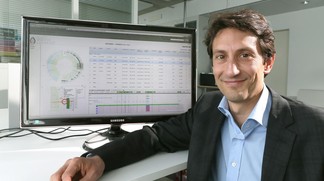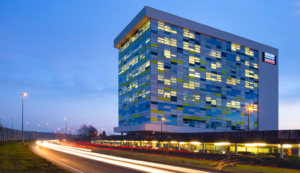
Sophia Genetics raises US$30m
Artificial intelligence (AI) specialist Sophia Genetics SA (St. Sulpice, Switzerland) raised US$30m in a series D round to foster global expansion of its cancer diagnostics annotation platform SOPHiA AI.
The company said it will use the money to further the performance of its genome sequencing platform-independent cancer diagnostics technology SOPHiA AI. Sophia Genetics’ big data analytics platform harnesses clinicians’ medical expertise to improve cancer diagnosis through "learning" AI algorithms that find cancer-relevant patterns in the genomic DNA of cancer patients.
The Series D round was led by Balderton Capital with new investor 360° Capital Partners, and existing investors Invoke Capital and Alychlo participating. Since its incorporation in 2011, the Swiss bioinformatics and sequencing raw data annotation specialist has raised US$61.6m. Sophia’s real technological advantage comes out of its machine learning technology that analyses the genomic data (i.e. of cancer patients) and minimises the noise from the use of multiple different combinations of sequencers and diagnostic kits to identify (DNA) variants with a clinical-grade accuracy, explains Mike Wise, partner at Balderton Capital.
Since 2011, Sophia Genetics has build up a network with 334 hospitals in Europe and has interpreted the genome data of over 125,000 patients – as much as Foundation Medicine Inc., in which Roche holds a majority stake, has in its proprietary data base. According to Sophia Genetics’ CEO Jurgi Camblong, this is only the beginning. With more and more hospitals adopting SOPHiA AI, the company has created the largest clinical genomics community, which enables the hundreds of institutions in the network to safely and anonymously share their findings and knowledge while ensuring patient data privacy.
Since inception, our vision has been to develop innovative technological solutions to help patients, equally wherever they live. SOPHiA acts as a real disruptor by breaking down the information silos in healthcare, meaning that the information from a patient in London or Paris can for instance help better diagnose and treat a patient in Lagos or Rio, Camblong says.
As the user-base scales, Sophia Genetics’ SOPHiA AIs get smarter and more accurate. Using self-learning algorithms, the platform benefits from the growing amount of de-identified data, which Camblong now wants to link with imaging data and other diagnostic data to give clinicians the capability to benefit from successful diagnoses – and in the end also treatments – carried out by collegues.
According to Sophia Genetics, the technology has been validated with more than 340 different DNA sequencers, while the algorithms were built bottom-up from raw FASTQ data, the most common file format used in DNA sequencing. As more and more clinicians feeding their diagnostic knowledge on the pathogenicity of variants into the platform at on-demand basis, the company’s machine learning techniques have moved having a precision rate of 85% for classification of variants for the first 10,000 patients, to 95% with the following 10,000, and 98% with the 10,000 after that. We are always between 99.9% and 100% for sensitivity, and between 99% and 100% specificity, says Camblong, whose next goal is to ramp up commercial activity from Europe to Latin America, AsiaPacific, Canada and the US.




 Qiagen
Qiagen